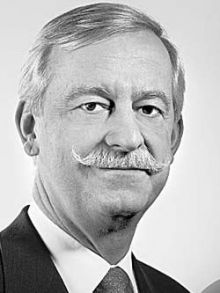This article is about private banks whose reliability and confidentiality are a source of pride for the small Alpine country of Switzerland. It is no accident that this country became the home of private banking: geographically and historically, it lies at the crossroads of the most important transport, trade, and financial routes, which have turned it into one of the world’s biggest financial centers.
Private bankers have played an important role in the development of the Swiss economy, international crediting, and the stock market. They were there when large joint-stock banks first came into existence, such as the Union Bank of Switzerland, one of the 10 largest banks in the world. Today an estimated 30—45 percent of all private bank deposits are held by Swiss banks.
A private bank is always the personal property of a banker, or it may be in the form of a limited or general partnership with its own stock. A private banker uses personal assets (money, securities, real estate, and other possessions) to conduct business activity and back up his unlimited liability and complete independence in decision-making. “When partners who run a private banking institution risk all their assets, clients are more willing to trust them with their capital,” says Pierre Mirabaud, the senior partner of Mirabaud & Cie, one of the oldest Swiss banks.
Mirabaud represents the most famous Geneva dynasty of bankers. He is a busy person and his travel schedule is hectic. He is the president of the Association of Swiss Bankers and was recently appointed financial advisor to the prime minister of Ukraine. I asked Eric Scherer, the director of Mirabaud & Cie, to answer a few questions.
What are the main financial services provided by your bank?
“Mirabaud & Cie was founded in 1819 and has traditionally dealt with asset management and financial consulting. In banking terms, this is called portfolio management, i.e., the creation and management of a portfolio of financial instruments, primarily securities, and private banking, i.e., a range of banking products, services, and technologies aimed at preserving, optimizing, and increasing the profitability of deposited assets and their inheritance. A private bank does not engage in commercial activity but manages securities and investments. The bank targets primarily a European clientele-in England, France, Spain, and Francophone Europe. Since the 1980s the bank has expanded internationally, and we now have branches in 10 countries.
“Clients keep their money where they feel it is safe. Switzerland is among the few generally acknowledged international financial centers, and this status has been significantly facilitated by its favorable location in the middle of Europe, the country’s stable political climate, century- long banking experience, and the trust of our international clientele.”
Are Eastern European countries attracting private Swiss bankers?
“Large commercial banks typically have entire analytical departments concentrating on one country or a certain geographical region. As a private bank, we do not carry out systematic marketing in countries. What interests us in Eastern Europe is, above all, the financial instruments that have been created there as potential investments for our clients, which can be made through funds, for example. Today this is more interesting for a private banker than an individual client. We are also interested in finding people who have the technical capabilities to create local investment funds. Pierre Mirabaud has always been interested in investment funds, and thanks to his efforts our bank has cooperated with Hussman Funds in the US since 1973. In 2006 we began cooperating with an investment fund that is especially active in Russia and Ukraine.”
Does a country’s political instability influence your decisions?
“We do not assess the political situation in countries. Instead, we are interested in their economic development. In my opinion, the Ukrainian economy is opening up to investors. Those who enter this market first will be successful. As a private bank, we may bring our clients’ finances to the Ukrainian market but only with their consent. Frankly, many are willing to take this risk. Russia and Ukraine are in the phase of full development and present a new area for world investments today.”
In the last 5 years the number of private banks in Switzerland has shrunk from 18 to 14. Can you explain this?
“At the end of World War II there were nearly 50 private banks in Switzerland. From the historical and legal points of view, a private bank faces specific problems. First of all, in order to have the status of a private bank, the name of one of the associated members or partners has to be included in its name. Many private banks, especially in Zurich, had expanded so much that they needed new investments. So private banks with several associate members with unlimited liability turned into joint-stock companies and obtained the status of ‘banking houses.’ Others were acquired by large commercial banks.”
They say that the initial deposit in a private bank is anywhere from $200,000 to $1,000,000. How do people become clients of your bank?
“A lot of people believe that only millionaires can be clients of a private bank. This is not exactly true. The main prerequisite is to have enough capital for diversifying a securities portfolio in order to hedge the risks. As they say, do not put all your eggs in one basket.
“All Swiss banks are supervised by the Federal Banking Commission. Audits are carried out by an independent auditing firm. The public at large does not know the turnover of private banks because under Swiss legislation banks that do not use state capital are not obliged to publicize these data-hence the aura of secrecy surrounding private banks, even though the federal authorities are well aware of every Swiss bank’s financial situation.
“The privilege of private banks is in choosing our clients, just like they choose their bankers. As a rule, in order to open an account in a private bank, the client has to be introduced to us by an organization or a person whom we already know. This may be a lawyer, notary, another bank, or simply a private individual in whom we confide. The future client of our bank will have to answer many questions, in particular about the origin of the capital and the reason for choosing our bank. This is the standard procedure for opening accounts in any Swiss private bank. If we are not satisfied with the answers, the account will not be opened.
“The client entrusts his or her money to us, knowing that it is safe. Similarly, we would like to have guarantees for the money we receive. Today each bank has a compliance department that checks potential clients, their economic activities, and their capital. Clients often want to open accounts for their enterprises. The information system World Check makes it possible to find out whether a particular firm or enterprise really exists, and if so, who are its shareholders or owners. If the compliance department is not satisfied with the client’s answers and the collected date, or has additional questions, the bank requests an internal commission to make a decision. Whether a certain individual or firm becomes a client of our bank depends entirely upon the decision of the compliance department or the commission.
“We are especially wary of politically exposed persons. As a rule, the bank refuses to open an account for individuals who are engaged in political activity, even within the boundaries of their own country.”
Joe Q. Public associates bank secrecy with numbered accounts. Is it true that by concealing the names of their clients, banks make it impossible to check their financial activity?
“A numbered account is a typical current bank account, and only the name of the client is hidden behind the number assigned to the account. However, the account manager and the bank are perfectly aware of who owns the account. Here we are talking about correctness and tactfulness with respect to the client rather than the secrecy of the information itself. If the source of the origin is illegal and the law enforcement agencies of a foreign country turn to the Swiss authorities for information, we provide bank books at the request of the Swiss authorities.”








